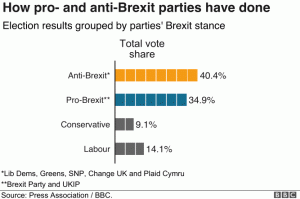I should forbear to comment on a piece of legislation which I’ve only skimmed through and can’t claim to understand, but the European Union (Withdrawal Agreement) Bill 2019-20 ascends dizzying heights of incomprehensibility. Every page is packed with cross-references to other clauses or legislation, and following the threads through the labyrinth would take me rather more than the three days the Commons is supposed to have for the whole process.
Some things are apparent, however. There are going to be lots of problems and snags, and the government’s answer to most of the complexities is to say: leave it to the discretion of Ministers to sort them out. (Where there are issues relating to devolution, the same trust doesn’t extend: the standard answer seems to be that Ministers will have to consent to anything that’s being proposed.) There are liberal references to the steps that the Minister “considers appropriate”, and to the resolution of any “matters arising” from any issue – a phrase which is loose enough to mean that almost anything the government decides to do in those areas will be fair game. There’s a clause, for example, about social security coordination, but what’s going to happen about pensions and medical treatment for UK citizens living in the EU? As far as I can see, the answer is that there’ll be regulations passed on this as necessary: the responsible agency will sort something out.
It follows that the Bill represents a major transfer of power to the government. Did ‘take back control’ really mean ‘leave it all to HM Government’? And even if one trusts this government, would the same apply if a different government came to power? I think Parliament needs to consider whether this kind of blanket delegation to the executive is the sort of legislation they would ever want to pass.
Further note, 26th October: There is a superb critical analysis of the Bill by barrister Anneli Howard. She points in particular to
- the Bill’s complex cross-referencing to other legislation
- the extensive ‘Henry VIII’ powers being granted to ministers, and
- the reduction in Parliamentary scrutiny that would follow from passage of the Bill in this form.
